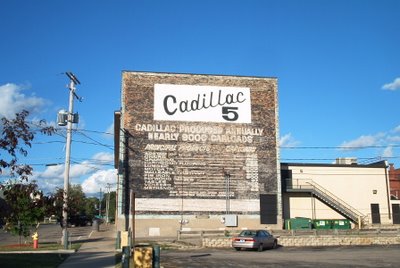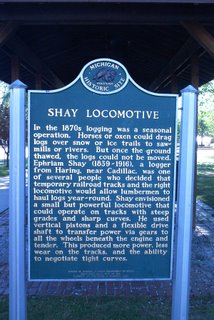Recent (and not-so-recent) reads
The Penelopiad, by Margaret Atwood. Atwood's entry in Knopf's series of modern interpretations of myth is, like
The Handmaid's Tale, a first-person narrative of relations between the sexes in a patriarchial culture. As the title suggests, it's the story of Penelope, the wife of Odysseus, as told by her in the gloomy vales of Hades, thousands of years after the events that made her name a byword for domestic fidelity. Atwood has some fun with the story, interjecting her own version of a Greek chorus and, half-seriously, some bits of Robert Graves' theories about prehistoric matriarchy. Penelope casts a different light on the events related in
The Odyssey. The warfare, the journeys, the disguises and escapades of Odysseus are absent, or related secondhand. Instead we have the recollections of a young girl, the daughter of a petty King and a minor water-goddess, who later became the trophy-wife of a far-distant king of an isolated and provincial island, a man famed for his devious mind and clever schemes. When he's called away to war, she learns just how fragile her authority is in his absence. And when he stays away, the human vultures start to gather. Schemes and counterschemes play out as in the
Odyssey that we all know, but in a slightly different key. And then there's that uncomfortable matter of the twelve hanged maids....
Weight, by Jeanette Winterson. Winterson's entry in the Myth series deals with the story of Atlas, the Titan who supposedly held the world on his shoulders. Sadly, the details of the story have escaped my mind in the months since I read it. I seem to recall it as being difficult to follow, and quick glance back at its pages reinforces that memory.
Company, by Max Barry. If you've ever worked for a company in which you suspected that nobody in the head office had the slightest clue what the company actually did, this is the book for you. A very funny satire on internal corporate behavior and vacuous management-by-fad from the author of
Jennifer Government.
Abbey's Road, by Edward Abbey. A collection of essays in three parts. The first part is a series of travel narratives about a trip through Australia, a typical Abbey mixture of shrewd social observation and absurdly macho misadventures, such as his decision to drive a rented car across the Australian outback, blissfully disregarding the fact that there is no road to speak of that spans the hundreds of desolate miles he plans to cover. His descriptions of an Australian cattle ranch, the treatment of the aborigines, and the railroad to Alice Springs are also entertaining. It's like listening to someone telling stories in a bar, or around a campfire. One suspects that parts of the story may be, shall we say,
taller than the events that actually transpired, but the detailed descriptions and observations convince us that he's mostly telling the truth. Part the second is "Polemics and Sermons", in which firebrand Ed blazes away in fine, impassioned style about the right to bear arms; politicians; the environment; "The Winnebago Tribe", etc.. Finally, a small collection of biographical pieces drawn from his experiences as a park ranger, fire lookout, traveler, womanizer, occasional drunk and perpetually irascible troublemaker. Good reading, although one gets the impression that Abbey could be a difficult and frustrating acquaintance.
Love, Roger, by Charles Webb. Somnolent story of a young man who works at a travel agency and sleepwalks through a series of amorous affairs with various young women. A blond nursing student from Wisconsin writes him a letter and asks to marry him. He meets a neurotic brunette and has sex with her. She fears she might be crazy. He has sex with a prostitute. The blond nursing student drops out of nursing school and travels across country so that he can take her virginity in the corner of the travel office. (Quoth she: "It's just that I wanted to get rid of my misconceptions.") The vacuous young man, the blond and the brunette move in together. I get the impression this is supposed to be shocking. Perhaps it was shocking in 1969.
The Drum Goes Dead, by Bess Streeter Aldrich. This short book begins with an arresting image. "Bellfield is similar to a hundred small midwestern towns. From the air its buildings look like so many dishes clustered together on a flat table. The covered soup tureen is the community hall. The red vase in the center is the courthouse. The silver tipped salt shaker is the water tank...." We meet Richard Lanner, a decent honest middle-aged chap who's become quite depressed by the world and is starting to become cynical about Christmas... until he plays Santa Claus in the local Christmas pageant and realizes that it's
for the children.
The Yellow Room, by Mary Roberts Rinehart. For some reason this woman had a successful career as a writer of mystery novels. This one put me to sleep, and I don't mean that as a compliment. The heroine is an insipidly helpless girl who spends most of the story wandering around aimlessly and watching while other people solve a murder at her family's huge summer mansion in Maine. Meanwhile she worries about the servants and what her mother and brother and sister-in-law think of her and mopes over her boyfriend, who was reported dead by the military a year ago. But...
is he really dead?
The Last Kingdom, by Bernard Cornwell. Cornwell follows a similar pattern in most of his books. They follow a male protagonist, an inhabitant of some time and place notable for its military contests, as he grows up from humble origins and becomes involved with the great battles and political/military leaders of his time. Fortunately, Cornwell is a skilled writer who's able to keep the reader interested despite his repetition of familiar themes, and he always does good research. (He even cites his sources in the afterword. Bless you, Mr. C!). This time, his protagonist, Uhtred, is the son of a Northumbrian lord in the ninth century A.D. The Anglo-Saxon petty kingdoms of England are beginning to collapse under the assaults of Viking invaders from the North Sea, and Uhtred becomes involved in the forefront of the conflict. Through his eyes, the reader has a historically plausible firsthand view of the long conflict as the English kingdoms teeter and fall in succession. Uhtred, like many medieval warriors, develops personal connections and obligations to both sides, which permits Cornwell to show the attitudes and strategems of both the Danes and the English. The most notable English leader is, of course, Alfred of Wessex, whom we see develop from a weak, confused teenager into the politically astute and militarily competent leader whom we know from history as Alfred the Great, savior of England. The story isn't concluded in this volume; Cornwell states in the afterword that "Uhtred will campaign again." A good read for anyone who enjoys medieval history or military fiction.













